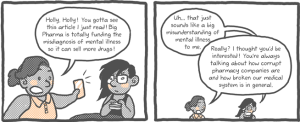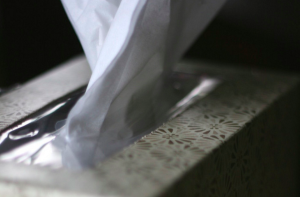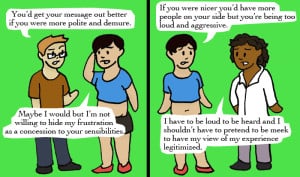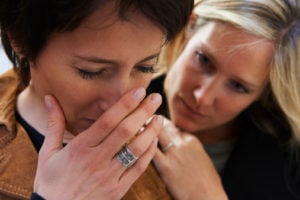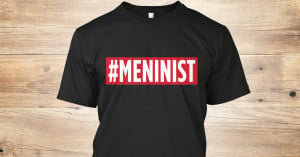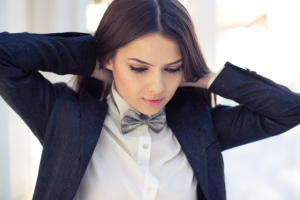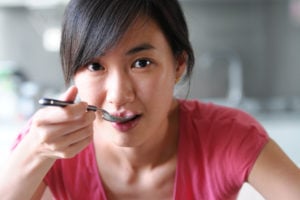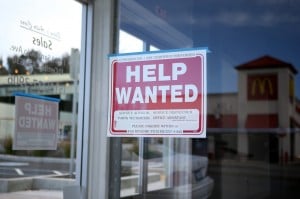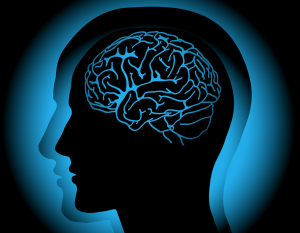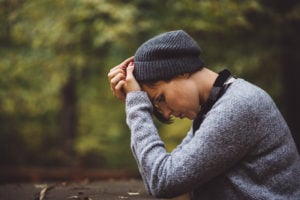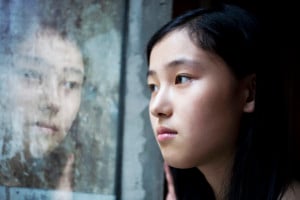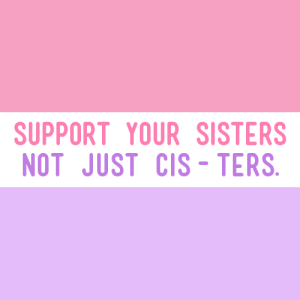Originally published on Medium and republished here with the author’s permission.
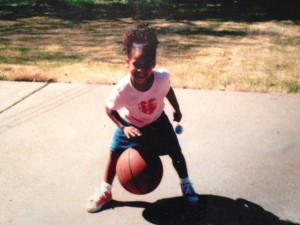
A very rare photo of me in a skirt, a heart on my shirt and in the color pink.
“I have always wanted to be both man & woman, to incorporate the strongest & richest parts of my mother & father within me.” –Audre Lorde
As I’ve been thinking and reflecting on my gender and sexuality within this last year, I’ve come to the conclusion that I’ve always been queer.
It was the second grade, but even then, I realized I wasn’t like other kids – and by other kids, I mean those who identified as girls.
I knew I was different when I didn’t want to play on the swings at recess, instead, I wanted to hoop; I didn’t want to wear dresses (let alone the color, pink), I preferred wearing baggy jeans and a Kurt Warner jersey; I didn’t want to wear pigtails, I wanted my hair out of my face, meaning I would tie the two braids on top of my head.
With these revelations, the kids who identified as girls distanced themselves because I didn’t blend in. On the flip side, the kids who identified as boys hung around me, but made jokes at my expense because in their eyes, I wanted to be them.
It was also in second grade that how I expressed myself was conflated with my sexuality (second graders have a sexuality?). From that point forward, even if I couldn’t quite put my finger on it, I knew I was different.
Throughout my entire public school experience, when kids were trying to get their jokes off (which were always terrible, because no one is out-joaning me), it always centered around how I “wanted to be a man” or how I was “a dyke bitch.”
In true St. Louis fashion, the jokes came out followed by the rebuttal “but you can’t whoop my ass though!”
I became so exhausted by those comments that I began to force myself to wear more feminine clothes and partake in more feminine activities.
From then on, everything I wore was tight. Tight jeans, tight shirts, dresses, heels, and the like. I wanted bigger breasts and a bigger ass. I got my hair done, shaved my “mustache” and eventually my entire body, even cutting my vagina lip once upon a time.
I took things so far to prove that I didn’t want to be a man or wasn’t attracted to women (“I’m straighter than a pencil”) that I became homophobic myself (“I don’t play that gay shit!”). I even swept every teenage boy I could off their feet, just to subsequently hurt their feelings, because “that’s what straight girls are supposed to do.”
(In hindsight, I spewed a lot of hatred and bigotry trying to prove to folks what I wasn’t and if you’re reading this – a few of you are – and were affected by it, I want you to know that I sincerely apologize.)
It was a wild ride I forced myself on, trying to appease to others’ makeup of me. All the while, it made me cringe when people called me a girl and it was weird being in relationships with boys, ESPECIALLY when it came to sex.
At the end of the day, my entire family was happy that I was embracing the womanhood society has painted; I also had friends who didn’t think I was weird.
Everything was all good, so why not bask in the discomfort, right?
Fast forward to August 2014 and I’m standing at the Ferguson police department when the woman who didn’t know she was going to become baé, but she was definitely baé, comes over and introduces herself, probably the lone good thing to come out of my involvement in the current movement for black life.
A week or so later, I go into a meeting with an ex-romantic interest (who was a man), and the same woman, baé who didn’t know she was baé, is leading the meeting. It was at that moment both I and the guy I was with realized I was a lesbian.
A few short months later, I’m at the courthouse, set to enter into a life partnership with this very same woman. We embodied every stereotype about lesbians moving fast, and I’m perfectly okay with that. I’ve never felt more liberated than I did when I accepted that being in love with a woman was a part of who I was.
But even after embracing my sexuality, I realized something still wasn’t right.
The word “woman” made me cringe even more. I started to explore transitioning, because if I didn’t want to be a woman, of course I wanted to be a man. I had yet to understand the social construct of the gender binary.
I thought I was experiencing gender dysphoria because looking in the mirror just made me sick to my stomach. Being naked just didn’t feel right, to the point that it was hard to get in the shower.
In hindsight, I realize that this was just my depression resurfacing in different arenas of my life. I was hindered by insecurities, not just in myself, but also within my relationship. I started to let patriarchal ways take over me and hypermasculinity consume me.
I grew so frustrated with learning that I really didn’t know who I was that I became a danger, trying to scramble to figure it out. It felt as if I had lost myself and didn’t know where to look to find me.
Thanks to friends, Twitter, and Google, I learned about gender being a spectrum and how gender isn’t really an either/or construct, even though society tries to frame it that way.
Learning this helped make looking in the mirror so much easier. I didn’t have to be a woman or a man. I didn’t have to transition to better fit one side or the other. I learned not only is it perfectly okay, but that I’m not alone in feeling as if I’m not a man or a woman, that I’m just Alexis.
Coming to grips with this realization allowed my mind to turn from a dark road with no direction to a dark tunnel with a light at the end of it. Clarity has just been another step in my healing, but it has been one hell of a step. I feel lighter and my existence no longer feels like a burden, an unidentifiable burden.
I’ve felt as if I fabricated who I was for 20 years and it feels like I’m finally about to have my first birthday as ME.
It’s okay to live your truth exactly how it looks. No matter how ugly it may be, dirty it may be, dark it may be, taking the step to living out your truth brings beauty, cleanliness, and sunshine into your life. It is mandatory in graduating from survival to living.
[do_widget id=’text-101′]
Alexis Templeton is 22 year old queer, gender-non conforming, advocate for black life. Connect with them on Twitter @audreoverlorde.
Search our 3000+ articles!
Read our articles about:
Our online racial justice training
Used by hundreds of universities, non-profits, and businesses.
Click to learn more





